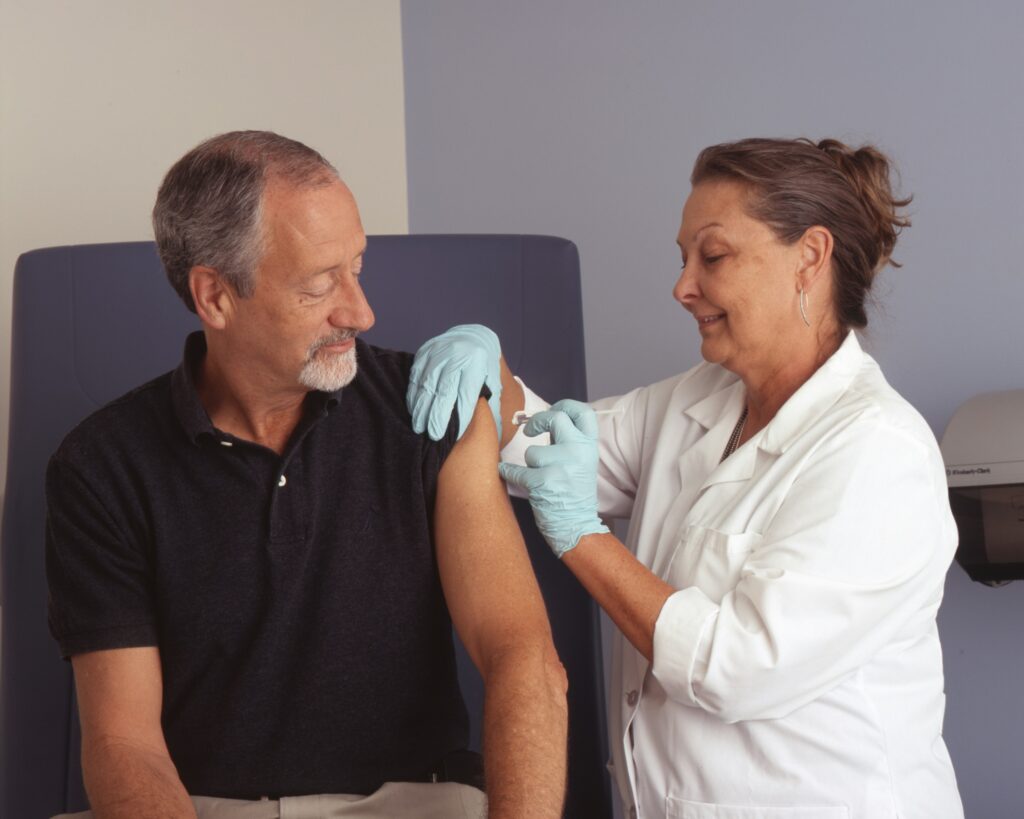“Consider these.”
These organizations may be able to give you some leads:
1) YWAM (Youth with a Mission). Their University of the Nations has a College of Counseling and Health Care. Their description: “Training programmes equip students with prevention, health education, treatment and assessment skills.” I would assume it would include a cross-cultural sensitive component, but they would have to tell you at what depth they deal with diseases and what strategies work best.
2) MAP Medical Assistance Program is focused on missionary medical training, and I’m sure they could give you helpful suggestions.
3) Fellowship of Associates of Medical Evangelism is a denominational support agency of Christian (Restoration Movement) tradition engaged in medical work, evangelism, funds transmission, and short-term programs coordination.
4) Christian Medical Association is “a nondenominational professional society of physicians and dentists engaged in medical work, continuing education, and evangelism through coordination of short-term program s in Africa, Asia, Latin America, and North America.” They are rather large, with 42 home ministry and office staff in the U.S. and 1,000 doing short term ministries. You would be rubbing shoulders with your own kind here.
5) Global Intent specializes in preparing professionals of all kinds to serve as tentmakers overseas.
Answer from Jack Voelkel, former missionary-in-residence with the Urbana Student Mission Convention; originally published on the Urbana website. Previously, Jack served thirty years with Latin America Mission in Peru and Colombia.
“Prepare to be a missionary nurse.”
.As a nursing student you are preparing professionally for your future ministry. Historically, the nursing profession has its roots in ministry and the church. Nurses cared for the sick, injured and dying as a calling from the Lord. In today’s health environment, that is not always the case. I am glad that you are pursuing nursing as a means to bring health and the gospel of Jesus Christ to those whom God brings into your care.
Missionary nursing requires that you also prepare yourself spiritually. Daily personal Bible study and prayer and time listening to God will strengthen your relationship with him and allow him to lead you in your next steps. Communal worship and involvement with the Church establishes your relationships within the family of God. Being grounded in God’s Word and having a community of believers is essential for effective ministry and will help you when encountering the spiritual opposition that inevitably occurs when we seek to proclaim Jesus Christ.
You can also prepare yourself emotionally by understanding your own culture and looking at how that differs from other cultures. Learning to adapt to different ways of doing things and seeing how other people view the world is part of missionary work. God has placed each of us in our own cultures. I also believe that God reveals Himself in each culture. Sin has perverted some aspects of culture and we don’t need to worship culture; but we can learn more about God from other cultures and they can learn more about God from us.
By learning and understanding another culture we are better able to present the Good News of Jesus in culturally appropriate ways. It also helps us to provide better nursing care and health education if we understand the customs, values, and beliefs of our host cultures.
All of these things can be done while you are still in nursing school. You can get involved with a campus Bible study and fellowship group where you can grow in your relationship with God and others. The United States is wonderfully diverse culturally and there are many opportunities for cross-cultural ministry here. You may wish to consider volunteering at a free clinic that serves another culture, or assist in a Bible club or after school program in a minority setting, or visit elderly refugees who have few social contacts.
You can begin to investigate mission organizations and the mission opportunities for nurses that they have. You’ll want to learn more about their philosophies of mission and the place that health ministries, particularly nursing, play in their ministry. Read their statements of belief and see if your beliefs are in line with those of the mission organizations that you are considering. Learn about the requirements the organization has for its missionaries, e.g. education, Bible courses, etc. Find the organizations that serve the countries and the people that God has put on your heart.
I highly recommend getting some nursing experience in the United State before serving in another country. If you have an interest in a particular aspect of nursing, obstetrical nursing for example, then try to work in that area. If you know the type of missionary nursing that you will be doing, get experience in that area here. If you are going to be asked to teach, get some experience in education. The full time work experience helps you develop the necessary skills in management, working relationships with others, including health professionals, and problem solving.
If you will be functioning in an advance practice role overseas, get credentialed as an advanced practice nurse here. You may not need the same credentials and license to practice in another country (in some countries you will be required to have more — Kenya, for example, requires that nurses be midwives). The people you care for deserve the best and it is good to have the at least the same credentials for practice that you would be required to have if you were practicing at that level in the U.S.
The annual Global Health Missions Conference in Louisville, and the Urbana Missions conference, are two places where you can explore missionary nursing more. The website of Nurses Christian Fellowship has a missions area that answers some of the frequently asked questions and has some resources listed. Nurses Christian Fellowship Press has also published my book, Caring Across Cultures: Preparing for Effective Missionary Nursing.
Answer from Grace Tazelaar, RN, director of missions for Nurses Christian Fellowship






